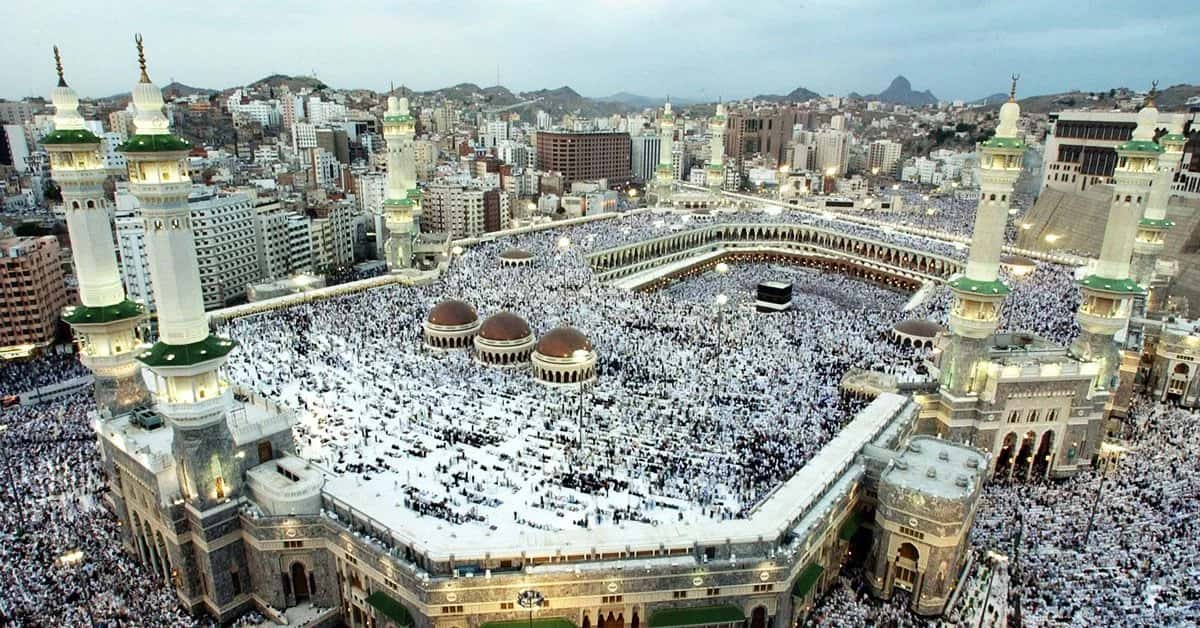Hari Raya Haji, also known as Aidiladha or Eid Al-Adha, is one of the most significant days in the Islamic year! On this date, we commemorate the feeling of togetherness and sacrifice. But that's not all! There are many things about this special date that not many people (even us Muslims!) may know about. So sit tight as we answer some of the questions you've probably always wondered about Hari Raya Haji!
P.S. Our Hello Ramadan 2023 website is now LIVE! Check it out and sign up to enjoy exclusive content and rewards for members!
1. Didn't you just celebrate Hari Raya?
Yes, we did. But both celebrations are of different significance! Hari Raya Puasa (also known as Eid al-Fitr) is to celebrate the end of the fasting month of Ramadan, whereas Hari Raya Haji marks the end of the peak of Hajj (pilgrimage). This pilgrimage to the holy city of Mecca is mandatory for every Muslim to perform at least once in their lifetime - but only if they are physically and financially able to!

2. What Hari Raya Haji greeting should I use when wishing my Muslim friends?
If you're planning to wish your Muslim friends this Hari Raya Haji, there are a few ways to do so!
- Selamat Hari Raya Haji
- Selamat Hari Raya AidilAdha
- Eid Mubarak
- Eid al-Adha Mubarak
- Happy Eid al-Adha
3. Are people still performing the Hajj right now during the COVID-19 pandemic?
This is the first year since the pandemic that Saudi Arabia has allowed one million Muslims (including 850,000 from outside Saudi Arabia) to make the annual Hajj pilgrimage. Those who are from abroad were required to submit a negative PCR result within 72 hours of travel.
4. So what's the difference between Hari Raya Haji and Hari Raya Puasa?
Hari Raya Haji is also known as the "Feast of the Sacrifice", and the highlight of Hari Raya Haji is not to go house-visiting but to honour the willingness of Prophet Ibrahim to sacrifice his son as an act of obedience to God. While Ibrahim was prepared to perform this heartbreaking act as an act of faith and obedience to God, his son was not actually sacrificed! Just when the Prophet was about to carry out the command, God intervened and replaced his son with a sheep. So now, we sacrifice (Qurban) a sheep during Hari Raya Haji to recognise this sacrifice and to show our own devotion to God. ☺️

5. But why are the animals tortured?
Unfortunately, the ritual has been plagued by conflicting accounts of how they are carried out. But if there's one thing we can assure you, it's that the animals are definitely not being tortured! In fact, the animals' comfort and welfare are of utmost importance during the whole process. Islam's method of slaughter ensures a quick and humane death to the animal.

6. Is qurban still taking place right now during the pandemic?
Due to COVID-19 pandemic, Singapore's MUIS has even instituted controls to ensure that hygiene standards are higher than ever. For the third year running, no qurban will be taking place in Singapore this year. Instead, MUIS and certain mosques or organisations have arranged for modified qurbans to be conducted overseas in Australia (where the sheep for qurban usually come from) or in needy villages. Singaporean Muslims will receive the meat from their qurban after it's been shipped from Australia.

7. The sheep is so big, how do you finish all the meat?
Well, we don't! Remember when we said that Hari Raya Haji revolves around the theme of sacrifice? This extends to the distribution of meat too. Although we 'bought' the sheep for the ritual, we are not the only ones who consume the meat. Muslims are highly encouraged to give most of the meat to the needy! The widely recommended distribution is that one-third of the meat is given to the poor and needy, another one-third to friends and neighbours, and the last third to be kept for ourselves. And this is not limited to those in your own country! Many people these days choose to do their sacrifice in less developed countries such as Syria, where the meat will be entirely donated to the needy.
8. Do you still get green packets on Hari Raya Haji?
It's not a norm, but you can if you want to! You'd be surprised to know that the practice of green packets is not mandatory in Islam. Giving green packets is simply a tradition. ? And even if you'd like to give, just give what you can afford! Sincerity is the very basis of Islam, as we believe that in everything we do, our intentions must be pure and sincere. So there's no need to conform to the 'standard' rate of green packets! If you're a non-Muslim who's been invited to a Muslim friend's house for a Hari Raya get-together and you're unsure about whether to give out green packets to their children, don't be afraid to ask your friend about it! There you go! We hope we've clarified some of your questions about Hari Raya Haji. But don't stop here! Share this article with your friends so they too would know what this special date is all about!


